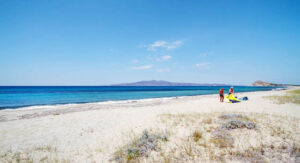It’s a fundamental reality of being an expat: One of the biggest challenges for English-speaking expat families – even for well-paid corporate nomads – is finding satisfactory, English-language international schools.
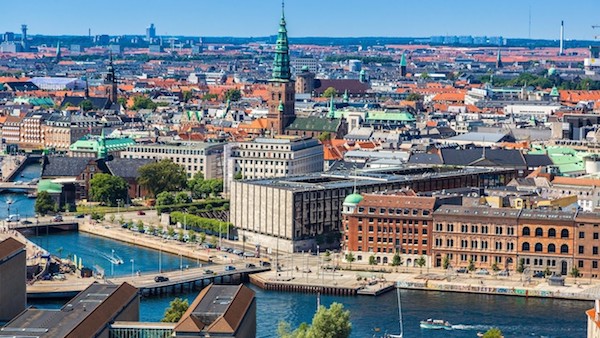 Such schools cater to expat students, with curricula tied to the host nation in question, or an international education organization such as Edexcel, Cambridge International Examinations, and International Baccalaureate; if you’re curious about the International Baccalaureate program, Dispatches Europe has a primer for your convenience.
Such schools cater to expat students, with curricula tied to the host nation in question, or an international education organization such as Edexcel, Cambridge International Examinations, and International Baccalaureate; if you’re curious about the International Baccalaureate program, Dispatches Europe has a primer for your convenience.
Wherever you’re headed, do not wait to get there before starting the application process with your preferred international school, which can be lengthy.
Copenhagen is Denmark’s capital and most populous city, home to more than 2 million people in the metropolitan area as of 2016. The former 10th century Viking fishing village is today the cultural, economic, and governmental heart of the nation, and one of the economic drivers of Northern Europe.
And thanks to its connection via the Øresund Bridge to Malmö, Sweden, Copenhagen is one half to one of the world’s transnational regions, the Øresund.
Copenhagen’s status as an economic driver is fueled by its service and commerce sectors, which includes: Copenhagen Stock Exchange; Danske Bank; Novo Nordisk; and Copenhagen Airport. The city has also encouraged the development of specialized business clusters for life science, IT, biotech, pharma, clean tech, and smart city sectors.
And of course, Copenhagen is tops in quality of life lists year after year; just don’t bother using Danish unless you’re a pro, though.
There are so many schools in the Copenhagen metropolitan area that we’ve had to break this guide up into two parts. The city has some of the most sophisticated international schools in Europe both in quality of education, and in cutting-edge facilities, many of which are new.
Also: the fees for each school are in Danish krone (ISO currency code DKK; dansk krone), as Denmark negotiated its right to opt-out of the Euro via the Maastricht Treaty of 1992. Though there has been some interest in reconsidering the opt-out since then, the Danes in general stand firm with the krone.
 Bernadotte School: Bernadotte School was opened in 1949 “by a group of parents who were motivated by the same ideas which led to the establishment of the United Nations: the prevention of future conflict by the promotion of international understanding.”
Bernadotte School: Bernadotte School was opened in 1949 “by a group of parents who were motivated by the same ideas which led to the establishment of the United Nations: the prevention of future conflict by the promotion of international understanding.”
Bernadotte’s international school, The Little House, is open to all students from around the world between the ages of 6 and 15, and is located in its own building to “maintain a ‘family’ atmosphere, in which both children and teachers have the opportunity to work closely together.” The school uses the Danish curriculum as a framework for its own, which also incorporates teaching materials from the United States and the United Kingdom.
- Fees (2017-18 academic year): DKK 250 waiting list fee; DKK 3,000 deposit upon acceptance into school; DKK 500 annual materials fee; DKK 14,850 annual playschool fee for the first child; DKK 23,520 annual school fee for the first child; full schedule of fees are here
- Requirements: Attend interview with child/children to be enrolled
- Application Deadline: N/A; contact school for information; there is a waiting list
- Contact: [email protected]
- Website: www.bernadotteskolen.dk
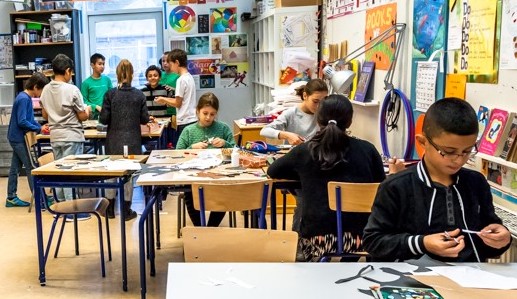 Bjorn’s International School: About 160 students from more than 50 nations attend Bjørn’s International School, which is a member of the European Council of International Schools and the International General Certificate of Secondary Education.
Bjorn’s International School: About 160 students from more than 50 nations attend Bjørn’s International School, which is a member of the European Council of International Schools and the International General Certificate of Secondary Education.
Established in 1967, BIS’ vision “is to provide a positive supporting environment where students have the opportunity to achieve successful results together,” with a focus on global learning to prepare its students for a future in an ever-changing world.
- Fees (2017-18 academic year): DKK 7,000 enrollment fee; DKK 100 administration fee per student; DKK 2,100 monthly tuition fee for first child, DKK 2,000 fee for second child, DKK 1,900 for subsequent children; deposit equal to one month’s tuition, refundable upon withdrawal of the last child; DKK 800 per child per year for Danish and English materials
- Requirements: Print, complete and submit application form with administration fee and required documentation
- Application Deadline: N/A; contact school for information
- Contact: [email protected]
- Website: b-i-s.skoleporten.dk/sp
 Children’s Garden International School: Focused on the smallest ones in your family, Children’s Garden International School’s Universal Child Program “draws insight from contemporary pedagogical theory based on Reggio Emilia concepts of early learning, exploration and approaches to children’s culture and development.”
Children’s Garden International School: Focused on the smallest ones in your family, Children’s Garden International School’s Universal Child Program “draws insight from contemporary pedagogical theory based on Reggio Emilia concepts of early learning, exploration and approaches to children’s culture and development.”
It uses those concepts “to develop a deep connection with their environment, and expand intercultural competence in a multicultural, multilingual setting.”
Children’s Garden’s curriculum is in line with the British National Curriculum, providing a path for its students into further education with International Baccalaureate PYP, British GCSE, and Scandinavian learning frameworks.
- Fees (2017-18 academic year): DKK 500 non-refundable application fee; DKK 9,800 deposit fee for children 2-3 years old, DKK 7,900 for children 3-6 years old; DKK 10,000 enrollment fee for one child, DKK 7,500 for each subsequent child
- Requirements: Download, complete and submit application form with application fee and required documentation
- Application Deadline: N/A; contact school for information; there is a waiting list
- Contact: [email protected]
- Website: www.childrensgarden.dk
https://youtu.be/jir63SlV9sw
Copenhagen In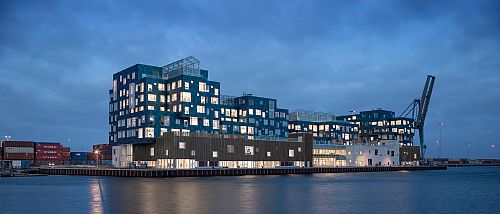 ternational School: Copenhagen International School is an IB World School with all three IB programmes available to its students.
ternational School: Copenhagen International School is an IB World School with all three IB programmes available to its students.
Copenhagen International School is one of the founders of the International Baccalaureate, which smoothes transitions for global families.
With 900 students from more than 80 countries, CIS offers student-centered and inquiry-based learning to children from the age of 3 to the high school diploma. With an eye on sustainability and creativity, the school helps its students grow by encouraging active community service, preparing students for success and global citizenship beyond school.
About 20 percent of the students come from the U.S., another 20 percent from Denmark, and 13 percent from the United Kingdom; more than 80 nations make up the rest of the 1,200 students who attend CIS.
In early 2017, CIS moved into its New Nordhavn Campus location, consisting of four separate towers – each housing one of the four learning programme sections CIS offers – designed around Dunbar’s number, age-appropriateness, and strong sense of community; the factsheet explains more.
• Address: Levantkaj 4-14, 2150 Nordhavn, Denmark
• Phone: +45 39 46 33 00
• Fees: See the full schedule of tuition and fees here
• Requirements: Complete and submit online application with application and registration fees and required documentation; evaluation and assessment may be necessary, depending on grade level
• Application Deadline:Ongoing; entrance based on space available
• Contact: [email protected]
• Website: www.cis.dk

European School Copenhagen: European School Copenhagen is one of the youngest of the European Schools, established in 2014 at Kirsebærhavens Skole in Valby.
ESC shares its mission with the other 12 European Schools throughout the continent: to create Europeans who still hold “love and pride” for their homelands, and will “consolidate the work of their fathers before them, to bring into being a united and thriving Europe.”
The school caters mainly to students whose parents are part of a European organization, while those who work for multi-nationals can have their tuition paid by their employer (via special agreement). Others can enroll, but will have to pay out-of-pocket.
- Fees (2017-18 academic year): None; the school is publicly funded
- Requirements: Complete and submit application with required documentation; undergo a screening for language, scholarly and maturity level
- Application Deadline: 15 January 2018 for 2018-19 academic year; application season starts 1 December 2017
- Contact: [email protected]
- Website: europaskolen.sag.dk
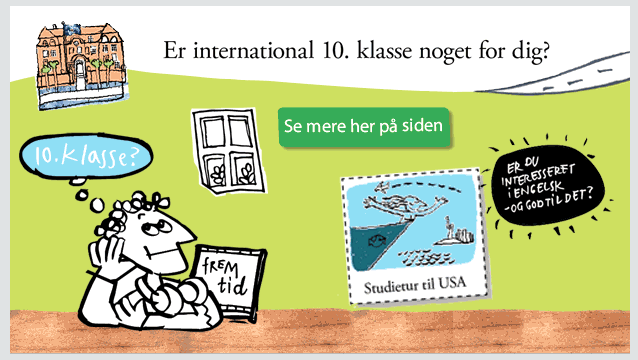 Institut Sankt Joseph: Founded in 1858 by the Saint Joseph Sisters of Denmark, Institut Sankt Joseph is a private Catholic school for students attending kindergarten through grade 10.
Institut Sankt Joseph: Founded in 1858 by the Saint Joseph Sisters of Denmark, Institut Sankt Joseph is a private Catholic school for students attending kindergarten through grade 10.
Nearly 800 students from more than 81 countries attend ISJ, 60 percent of whom are Protestant; 20 percent are Catholic, while the remainder are Muslim, Jewish, Buddhist, or not affiliated with a religion.
ISJ’s mission is to ensure each student “has access to an academically challenging liberal arts education, which is composed of an ambitious and caring school environment that is grounded in professionalism, solidarity and Catholic-humanistic ideals.”
- Fees (2017-18 academic year): DKK 1,000 non-refundable registration fee;
DKK 3,000 deposit for grade 0, DKK 5,900 for grades 1-10; DKK 2,950 monthly tuition fee for first child,
DKK 2,122.50 for second child, DKK 1,435 for third child; full schedule of fees here - Requirements: Complete and submit application with application fee and required documentation
- Application Deadline: N/A; contact school for information; there is a waiting list
- Contact: [email protected]
- Website: sanktjoseph.dk
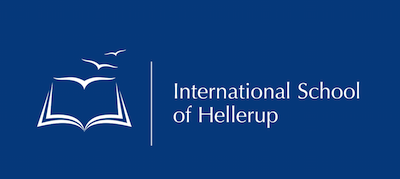 International School Hellerup: Founded in 2009 as Østerbro International School, International School Hellerup is an IB Continuum school, having become an IB World School in 2015.
International School Hellerup: Founded in 2009 as Østerbro International School, International School Hellerup is an IB Continuum school, having become an IB World School in 2015.
ISH’s mission is to “foster a nourishing and respectful environment where all individuals become reflective and active members of the society, contributing to the common good and world peace through/based on universal values.”
More than 70 nationalities are represented at the school, which changed its name in 2017 “to create an identity that better reflected the location” of its new campus in Hellerup.
- Fees (2017-18 academic year): DKK 2,000 non-refundable application fee; DKK 8,000 one-off refundable school deposit fee for families with one child, DKK 15,000 for families with two children, DKK 19,500 for families with three or more children; DKK 3,700 – DKK 2,800 monthly tuition fee,
depending on grade level; full schedule of fees here - Requirements: Complete and submit online application with application fee and required documentation
- Application Deadline: Ongoing for most grade levels, 1 September for MYP5 and IB Diploma students; entrance based on space availability; there is a waiting list
- Contact: [email protected]
- Website: ish.dk
Lifestyle journalist. Born in Louisville. Raised in Kansas. Where I lay my head is home.











